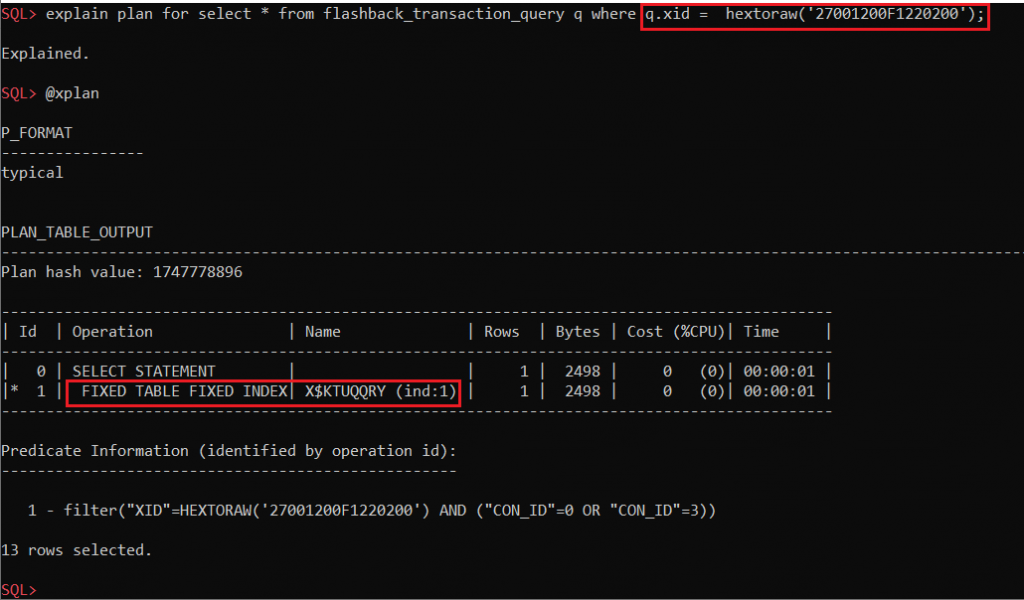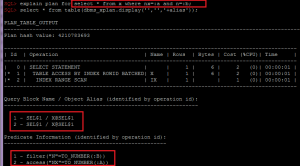Just a few thoughts I’ve been meaning to blog for a while:
1. Number of columns that can be offloaded
Exadata
Very early on in the Exadata Smart Scan implementation a restriction was added to prevent offloading more than 255 columns. This was done because of performance issues observed by customers. Smart Scan works on 1 MB chunks at a time and needs all the row pieces up to the highest #segcol referenced to be present in the 1 MB chunk that is being processed. When rows with more than 255 columns are first inserted all the row pieces are contiguous and hence likely to be present in the 1 MB chunk.
However, if the DBA has not provided sufficient freespace (PCTFREE) in the block when it is first loaded subsequent DMLs may end up splitting row pieces and moving pieces to blocks in the freelist that have more space available. PCTFREE specifies how much empty space to leave for future updates when a block is first populated.
Continue reading




